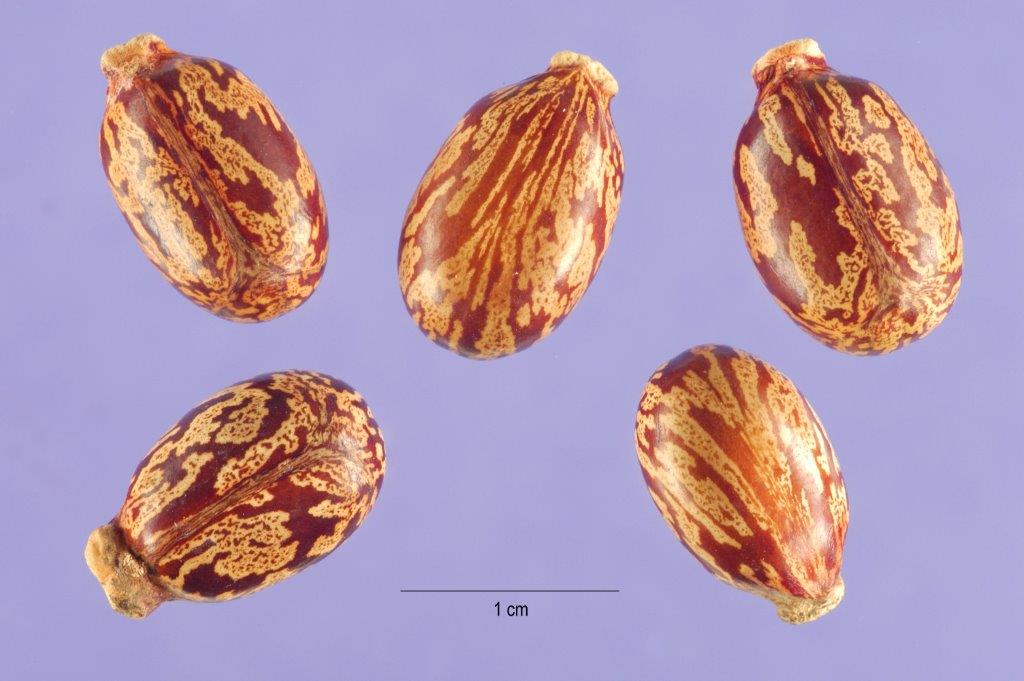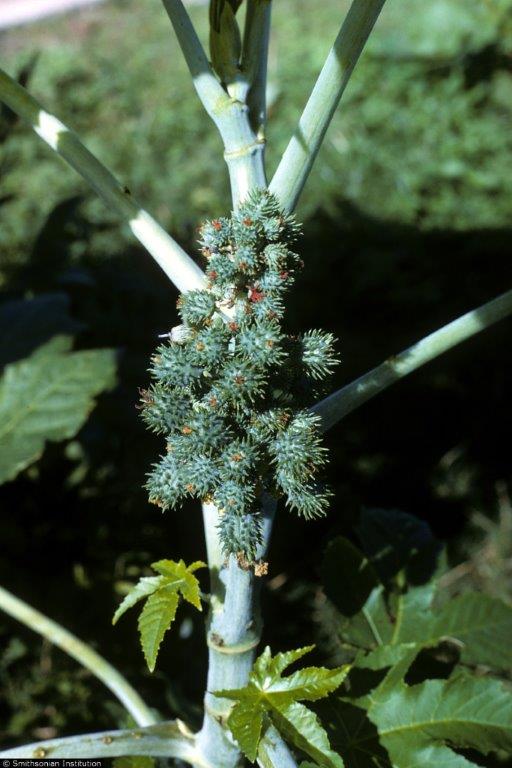
Triangle Biotech Duo Plants Global Future
 |
| Castor beans. Photo courtesy of Steve Hurst @ USDA-NRCS PLANTS Database |
Southern cooks know rice ‘n’ beans to be the “perfect protein,” a combination that’s cheap, nutritious and, with the right spices, mighty tasty.
Ricin beans, however, are different – and deadly.
Now two neighboring Southern companies are teaming up to keep that nasty ricin out of castor beans.
Precision Biosciences, of Durham, and Nova Synthetix, of Chapel Hill, have initiated a “multi-year” joint research effort to generate non-genetically modified, ricin-free castor plants.
Ricin has made news in recent years as the poison dusted on mail to kill unknowing recipients. It comes from the castor bean, which also produces a valuable oil used around the world in foods and industrial applications, in everything from nylon and other plastics to soaps and medicines.
 |
| Castor plant with bean cluster in husks. Photo courtesy of R.A. Howard @ USDA-NRCS PLANTS Database |
Grown mostly in India, East Africa and the southeastern Mediterranean region, castor causes widespread health problems among people who harvest it because of its ricin content. An adult can reportedly die from swallowing just four of the bean-sized seeds.
The two young biotech companies haven’t disclosed financial terms of their agreement, but they plan to use Precision’s proprietary Directed Nuclease Editor (DNE) technology and a proprietary plant transformation system owned by Nova Synthetix to get the job done.
DNE is a powerful tool that enables production of enyzmes that can insert, remove, modify, and regulate genes in mammalian and plant cells.
Nova Synthetix was started in 2012 with the help of a $50,000 Company Inception Loan from the North Carolina Biotechnology Center.
Besides removing ricin from their special castor plants, the companies also plan to work together to generate customized variants containing customer-defined oil profiles for industrial, biofuel, and animal feed applications.
“We are excited to be working in collaboration with the Nova Synthetix team to take on this important agricultural challenge,” said Precision CEO Matthew Kane. “We look forward to helping in the creation of a safer castor product.”
Nova Synthetix President and co-founder Don Walters added, "This effort presents the opportunity to combine both companies' technology to create crop varieties with superior genetics for all sorts of industrial and food applications."
Walters and co-founder David McElroy, Ph.D., have also said they expect their new castor plant to become a major high-value crop for North Carolina farmers.
Precision also struck a deal this week with Medford, Massachusetts-based biotech company Agrivida to use Precision Bio's DNE genetic modification technology to develop traits in corn that can improve animal nutrition for the dairy and beef industries.
